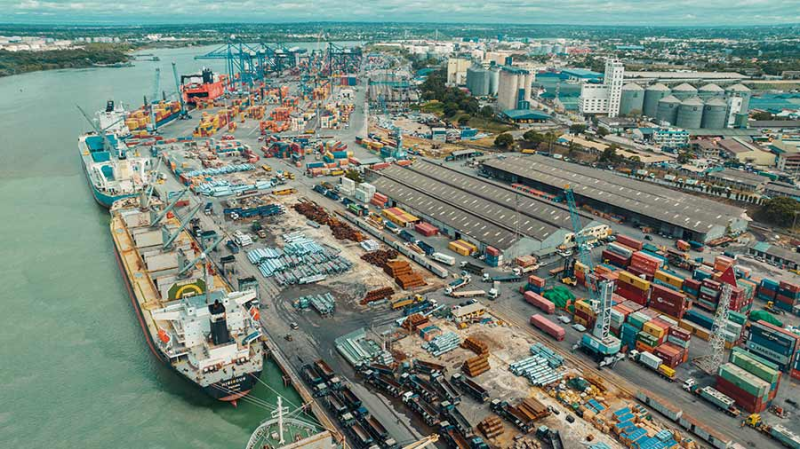Kuwait maritime trade is experiencing a significant transformation as the country invests heavily in modernizing its ports and logistics networks. With strategic initiatives and new infrastructure projects, Kuwait aims to strengthen its position as a regional hub for maritime trade, boosting both its economy and international business relations.
Kuwait’s strategic location in the Arabian Gulf has long made it a crucial link between the Middle East and global markets. Recognizing this advantage, the government has prioritized maritime trade and ports development as a key pillar of its economic growth strategy.
Expanding Ports to Handle Growing Trade Volumes
To accommodate rising global trade, Kuwait is expanding its port facilities. The Shuwaikh and Shuaiba ports, among the country’s oldest and busiest, are undergoing major upgrades. These expansions include new container terminals, enhanced storage facilities, and modern cargo handling equipment designed to speed up operations.
The Kuwait Ports Authority (KPA) has also introduced automated systems to streamline cargo movement and reduce congestion. These improvements aim to make Kuwait a competitive alternative to larger Gulf ports while improving service reliability for international shipping companies.
Modern Technology Drives Efficiency
Kuwait’s investment in ports infrastructure is not limited to physical expansion. Modern technologies are being adopted to increase efficiency and safety. Smart logistics platforms, digital tracking systems, and automated customs processes are helping reduce delays and improve supply chain management.
By implementing these technologies, Kuwait ensures that its maritime trade sector can handle increased demand from both import and export activities. Businesses benefit from faster clearance times, reduced operational costs, and improved transparency in cargo handling.
Boosting Economic Growth Through Maritime Trade
Strengthening Kuwait maritime trade has direct implications for the nation’s economy. Ports and shipping sectors are vital contributors to employment, foreign investment, and GDP growth. With improved infrastructure, Kuwait is better positioned to attract international shipping companies and investors looking for reliable trade routes.
The government’s focus on maritime trade also aligns with Kuwait Vision 2035, an ambitious development plan aimed at diversifying the economy away from oil dependence. By modernizing ports and logistics, Kuwait can become a regional trade hub and stimulate growth in non-oil sectors such as manufacturing, retail, and tourism.
Strategic Partnerships and International Collaborations

Kuwait has also been forming strategic partnerships with international ports and shipping companies. Collaborations with leading global logistics firms provide technical expertise, innovative solutions, and operational best practices to elevate Kuwait’s maritime capabilities.
Furthermore, bilateral agreements with neighboring Gulf countries aim to improve regional connectivity. Enhanced trade routes and shared infrastructure projects strengthen Kuwait’s role in the Gulf Cooperation Council (GCC) trading network, making cross-border trade smoother and more efficient.
Environmental Sustainability in Ports Development
Modernizing ports is not just about efficiency; it also focuses on sustainability. Kuwait is adopting environmentally friendly practices in its ports, including waste management systems, emission reduction technologies, and energy-efficient operations.
Ports are being designed with green infrastructure in mind, such as solar-powered lighting, eco-friendly cargo handling equipment, and shore power facilities that reduce the need for ships to run engines while docked. These initiatives ensure that Kuwait’s maritime trade growth aligns with global environmental standards.
Challenges and Solutions in Maritime Trade Expansion
Despite the progress, Kuwait faces challenges in scaling maritime trade. Limited land space, fluctuating global shipping rates, and regional competition from ports in the UAE, Saudi Arabia, and Qatar are notable concerns.
To overcome these challenges, Kuwait is focusing on:
- Optimizing port logistics: Reducing congestion through digital management systems.
- Expanding port capacity: Creating new terminals and storage facilities.
- Enhancing workforce skills: Training programs for port operators and logistics professionals.
- Strengthening regional ties: Coordinating with neighboring countries to streamline shipping routes.
These measures ensure that Kuwait can maintain a competitive edge in the dynamic maritime trade sector.
Supporting Local Businesses and SMEs
Improved maritime trade infrastructure benefits not only large corporations but also small and medium-sized enterprises (SMEs). Faster port operations, reliable logistics, and better access to global markets help local businesses expand their reach.

Kuwait’s government is also introducing incentives for SMEs to use port facilities efficiently, encouraging entrepreneurship and innovation in export-oriented sectors. This approach contributes to overall economic diversification and strengthens the private sector’s role in trade growth.
Future Plans for Kuwait Maritime Trade
Looking ahead, Kuwait plans to further modernize its ports and maritime facilities. Upcoming projects include:
- Deepwater port development: To accommodate larger container ships.
- Digital port platforms: Integrating AI and IoT technologies for smarter operations.
- Expanded free trade zones: Enhancing international trade incentives and connectivity.
- Maritime training centers: Developing skilled professionals to support the growing sector.
These initiatives are expected to make Kuwait a leading maritime hub in the Gulf, attracting investment and increasing its influence in global trade networks.
Conclusion
Kuwait’s commitment to strengthening maritime trade and ports infrastructure reflects its vision for economic growth, sustainability, and regional leadership. By modernizing ports, adopting new technologies, and fostering international partnerships, Kuwait is positioning itself as a central hub for trade in the Gulf.
This comprehensive approach not only benefits large-scale businesses but also supports local enterprises and creates employment opportunities, contributing to a diversified, resilient economy. With continued investment and strategic planning, Kuwait’s maritime trade sector is poised for significant growth in the coming years.
Also read: Smart Metering: 5 Powerful Ways Transforming Utilities Management in Kuwait


